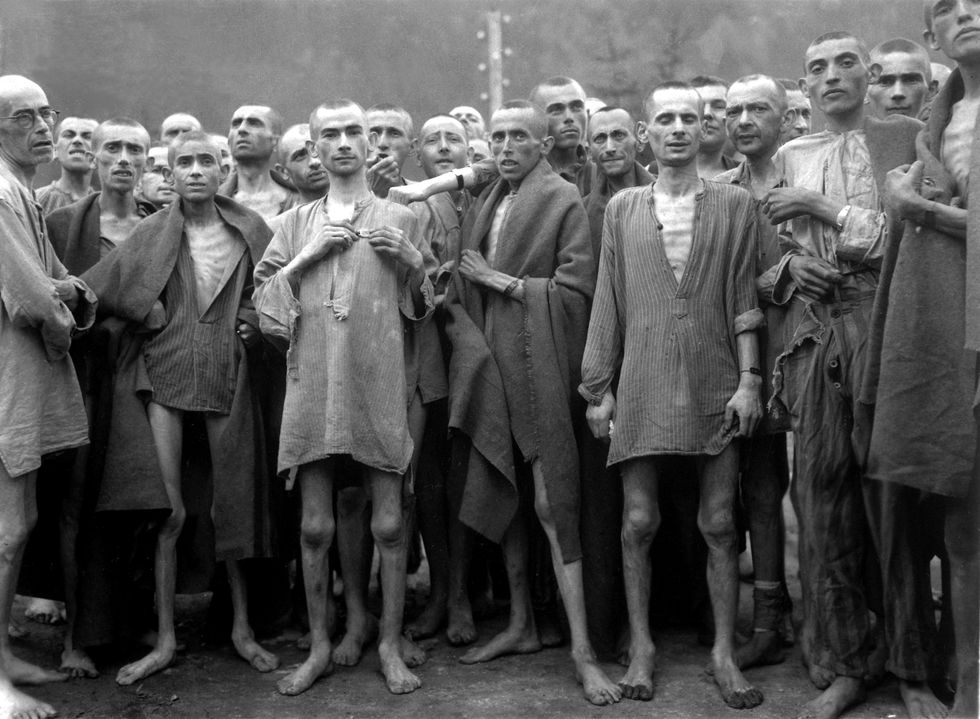Everyone at one point in their life is disturbed by the prospect of evil. You may be a punk-rock Nihilist, but you still shake sometimes before the overwhelming atrocities of man. No one can escape the crises that suffering causes.
More disturbing than any other period in history was the 20th century. More people died at the hands of totalitarian regimes such as Nazi Germany, the Soviet Union, Maoist China, Communist Vietnam, Cambodia and Cuba than any other regime before. These were death empires which sometimes exterminated individuals even faster than they produced them. For the first time, industrial-sized factories (even cities) were created to for the extermination of people. No one can escape thinking about the events of the 20th century. So ingrained are these memories that Germany requires that all high school students tour a Holocaust concentration camp and most nations have created some type of Holocaust memorial. Nothing will ever block out the horrors of the 20th century.
The event that has the most remembrance is the Holocaust. Although Stalin and Mao killed far more than the Nazi party did, most people remember places like Auschwitz, Buchenwald and other death camps as the symbols of 20th-century cruelty.
As for me, this question of occupies my mind every day. Since high school, I have thought constantly on this issue, but the question that disturbs me the most is this: how could ordinary individuals turn into such monsters?
Let me describe this more thoroughly. When I say ordinary individuals, I mean people like you and me. I emphasize this because most of the people who ran the concentration camps were not rapists, murderers or thugs before they entered the camps. They were statistically ordinary people who not only killed woman and children but grew to enjoy it.
In a lecture about man's diminishing moral compass when placed in extreme situations, professor Jordan B. Peterson from the University of Toronto recounted the German police who were sent to Poland in World War II. The police were not young enough to have grown up in the Nazi party (indoctrinated in the Hitler Youth) and were not criminals in any way. Despite this, the police were asked (not commanded) by their officers to commit horrendous crimes, and they carried them out without much complaint.
These officers committed several executions. Some of these crimes included shooting pregnant women, but the most disturbing act is, as Peterson remarks, "their commander told them they could go home at any time." The officers could have rejected to commit such heinous crimes. The main justification used by these officers, in the end, was "they didn't believe it was comradely ... to leave their comrades to do the dirty work and run off."
The officers at several points became both physically and psychologically sick, but never stopped carrying out the executions. Why? How could ordinary people become killers like this? Peterson only states, "It's one step at a time, and that's the thing is that you end up in really bad places one step at a time, so you better what's those steps." Humans move closer towards evil one step at a time. When placed under the right conditions, man can become a monster.
There are thousands of examples of this playing out. The Trawniki concentration camp in Poland would become not only a death camp but a training facility for the Schutzmannschaft. The Schutzmannschaft was a group of SS auxiliary troops who would play a major role in the Holocaust. Most of these volunteers (stress on the word “volunteers”) were ordinary men, primarily Ukrainians, who willingly hunted Jews and ran death camps.
For every country the Nazis captured, a volunteer legion was created for the rounding up and killing of Jews. These legions were voluntary, and members often committed crimes with great enthusiasm. As many as 350,000 men across Europe would serve in these SS foreign battalions. Evidently, the Germans were not the only killers in the Holocaust. Almost every European nation gave volunteers for the extermination of the Jews and other Holocaust victims.
Again, what continues to disturb me is that the Holocaust was not run by criminals, rapists and murderers but by ordinary individuals. One of the core lessons of the 20th-century genocides was that everyone is capable of horrible crimes. That includes me, and those who are reading this article. When asked to try to imagine yourself in Auschwitz, most would imagine themselves as the inmates. This would be missing the truth. Instead, the lesson I learned is to image yourself as the guard.
Many said "never again" after the Holocaust, but it happened again. It happened in China, Vietnam, Cambodia, Russia, Rwanda and Nigeria. Why? Because no one has actually learned from what happened.
I firmly believe that if something like the Holocaust were to happen again in the West, it would generate similar results. Most would stay quiet as their neighbors were butchered, and when offered the choice to become an inmate or guard, almost everyone would become a guard. In the face of what happened in the 20th century, do you really believe you are a good person who would stand up against tyranny? The facts are clear: most of us would remain silent or become Auschwitz guards.



















